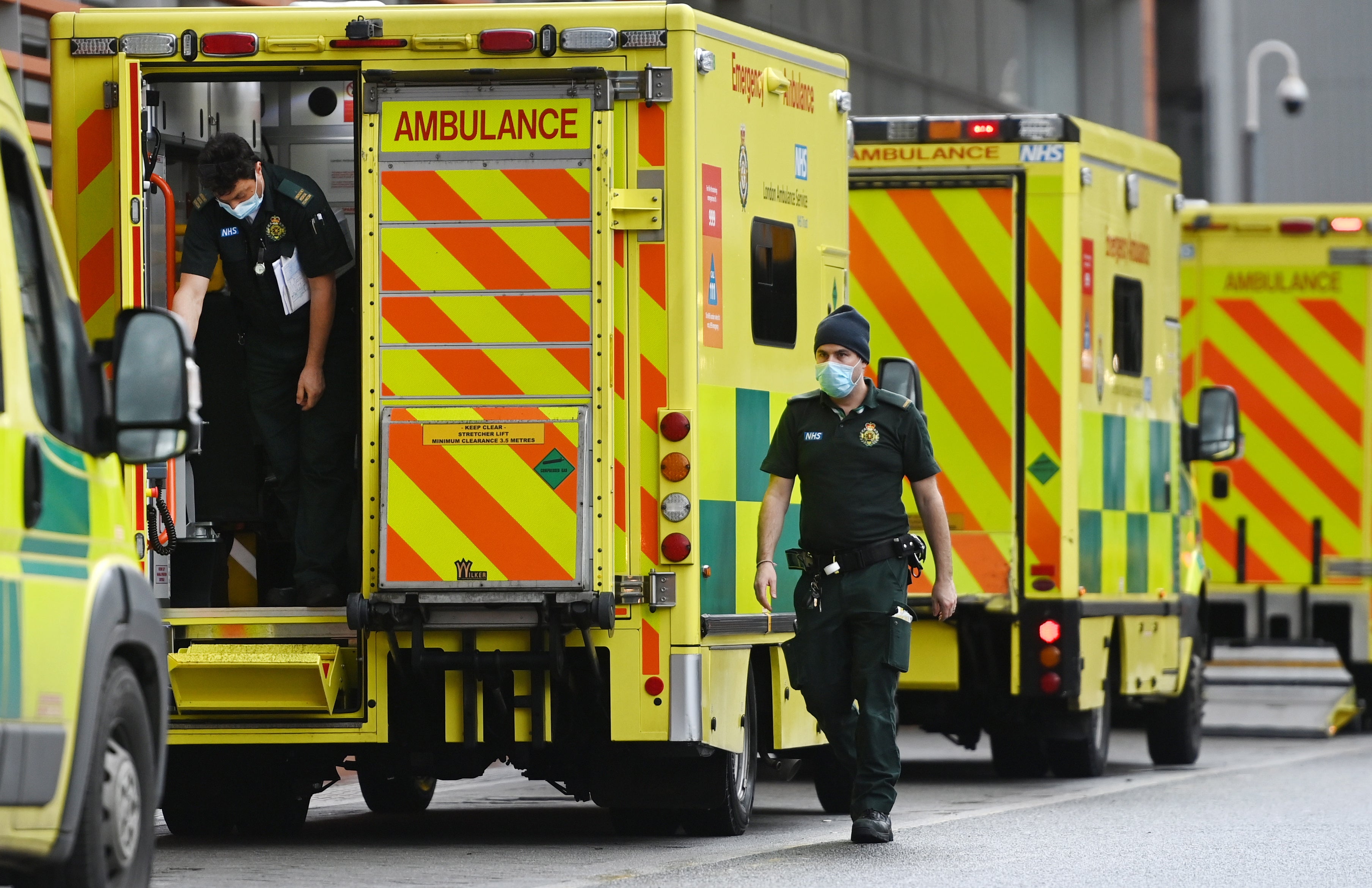Ambulance handover delays at hospitals jumped 44 per cent before Covid
Labour calls for new rescue plan as data reveals scale of pressure on hospitals before the pandemic

The number of patients forced to wait with paramedics for at least an hour in ambulances and hospital corridors jumped 44 per cent in the year that preceded the coronavirus pandemic, according to new figures.
Data obtained by the Labour Party from nine out of the 10 ambulance trusts in England shows the deterioration in A&E capacity before the pandemic hit the UK.
The pressure on hospital A&E departments, with rising numbers of patients waiting to be seen or to be moved to a bed, meant hundreds of thousands of patients were left with paramedics before they could be handed over to hospital staff, delaying the ambulances in responding to other emergency calls.
Between April 2019 and March 2020, 651,192 people waited for 30 minutes or more to be transferred from the care of an ambulance crew to an A&E department. That was up 18 per cent on the year before, when 552,303 people waited at least 30 minutes.
In total, 122,474 patients waited longer than an hour to be handed over by paramedics – up 44 per cent on 2018-19, when 85,083 people waited that long.
Some patients would have been left in ambulances or made to wait in A&E corridors.
During the Covid pandemic, the risks of infection and the need to keep people socially distanced led to scenes of long queues of ambulances outside major hospitals, with paramedics delayed for hours. In some cases, this saw 999 calls waiting hours for a response.
Earlier this month, West Midlands Ambulance Service revealed that a patient in her nineties died as a result of “being delayed on the back of an ambulance” days after the service warned hospitals that lives were at risk because of handover delays.
The case, first reported in the Health Service Journal, saw the woman taken to the unnamed hospital because of a nosebleed that wouldn’t stop. Waiting outside, the blood began to threaten her airway and she went into respiratory distress. She was admitted to the A&E 32 minutes after the ambulance arrived but died a short time later.
South Central Ambulance Service was the only trust not to respond to Labour’s Freedom of Information Act request, meaning that the total numbers are likely to be substantially larger.
East Midlands Ambulance Service had the highest number of patients waiting over 30 and over 60 minutes in 2019-20, with a total of more than 128,000. South Western Ambulance Service had the lowest number of patients waiting.
The shadow health secretary, Jonathan Ashworth, said: “The growing number of people waiting in the back of ambulances and hospitals corridors for treatment, even before the pandemic hit, shows the perilous state our NHS was in.
“Since then the pressure has only worsened, with increasing waiting lists and waiting times leaving patients in pain and discomfort while they struggle to be seen.”
He added: “Ten years of Tory underfunding and cuts in health and care services weakened our NHS and left it unprepared for this crisis. We now need a long-term NHS rescue plan, with the staff, equipment and modern hospital facilities to deliver the quality care patients deserve.”
A Department of Health and Social Care spokesperson said: “The government is committed to supporting ambulance crews who work tirelessly to respond to emergencies every day. An extra 256 new ambulances are on the roads across the country thanks to our investments.
“We have backed health and care services with record funding, both before and during the pandemic, including with an extra £29bn this year, plus £450m to expand and upgrade A&E departments.
“Covid-19 has challenged healthcare systems across the world, and our priority is working closely with the NHS to ensure the public gets the care they need and to accelerate the recovery of vital services and treatments.”
NHS England was approached for comment.
Join our commenting forum
Join thought-provoking conversations, follow other Independent readers and see their replies
Comments
Bookmark popover
Removed from bookmarks